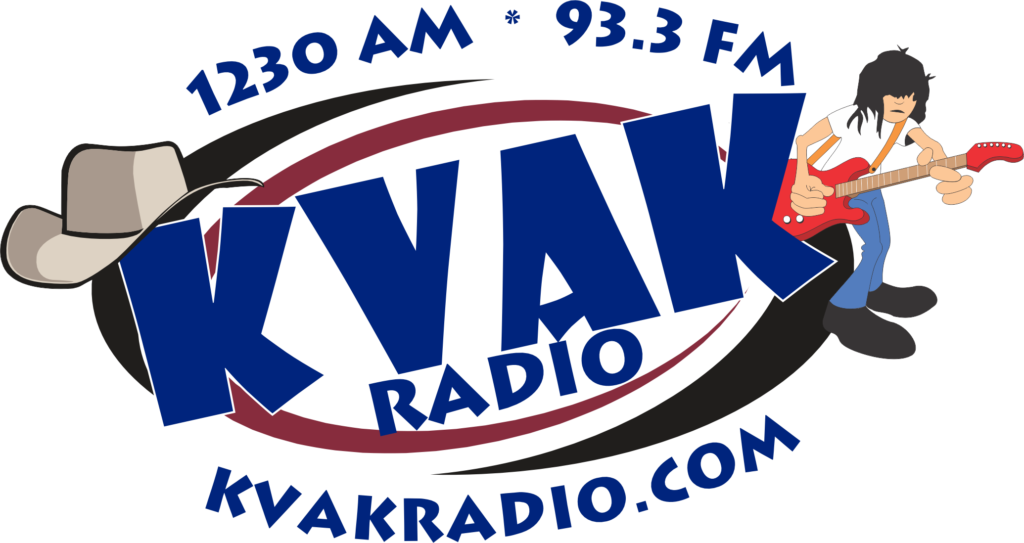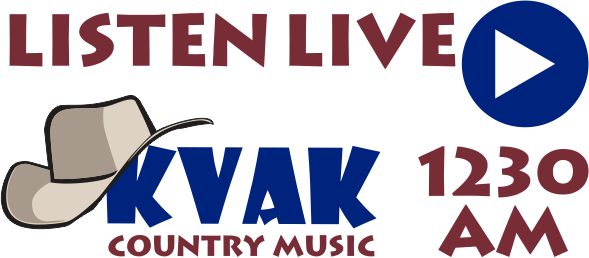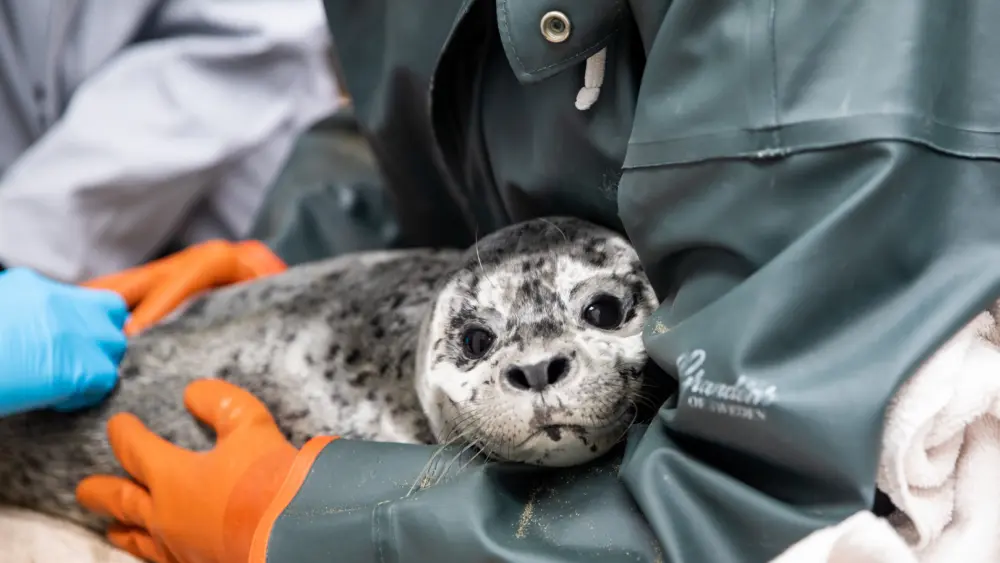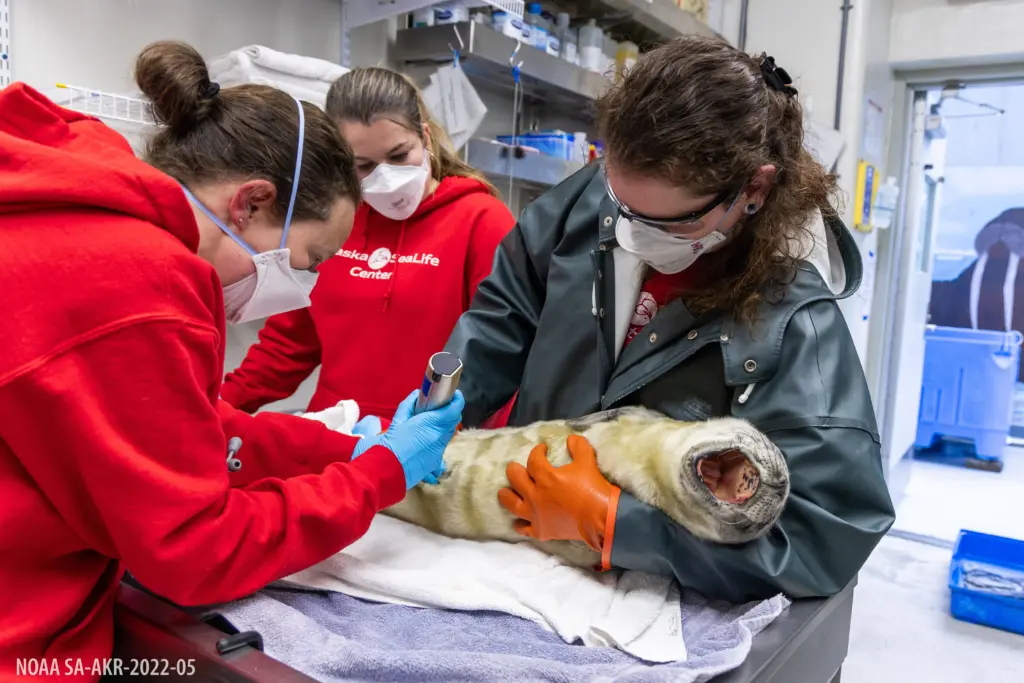
Seward, Alaska (June 4, 2025) – The Alaska SeaLife Center (ASLC) has admitted three more harbor seal pups to the Wildlife Response Program in the past seven days, marking a busy start to the 2025 season. One of the pups was born prematurely, one was found severely malnourished, and another was rescued after it was found alone, likely due to maternal separation. These cases follow the recent admissions of another premature harbor seal pup and an orphaned northern sea otter pup, all requiring intensive rehabilitation and veterinary care.
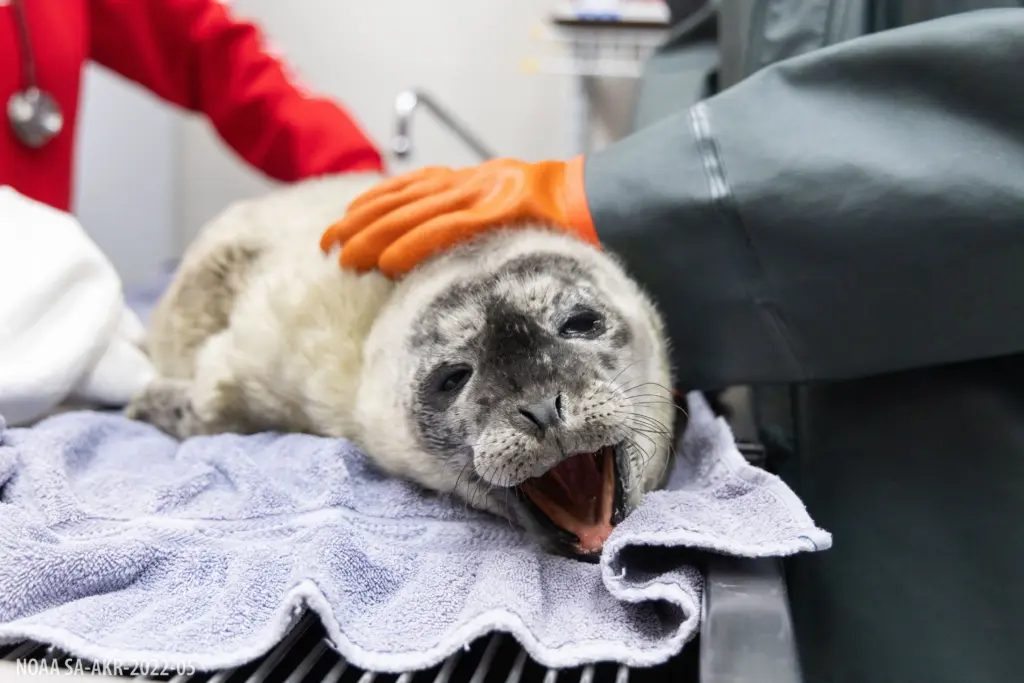
On May 26, 2025, a premature male pup was found alone on a beach near Petersburg, Alaska. The next day, it was still there alone, prompting National Oceanic and Atmospheric Administration (NOAA) staff in the area to call the ASLC hotline. After receiving authorization, the pup was recovered and quickly prepared for a flight leaving Petersburg, Alaska that morning. The seal was transported to the Alaska SeaLife Center, where he remains in critical condition as veterinary teams work to stabilize his fragile health. Similar to challenges a premature human baby may face, the pup’s yellow-tinted gums and bloodwork indicated that his liver isn’t functioning as it should, and his condition remains critical as he fights each day to survive.
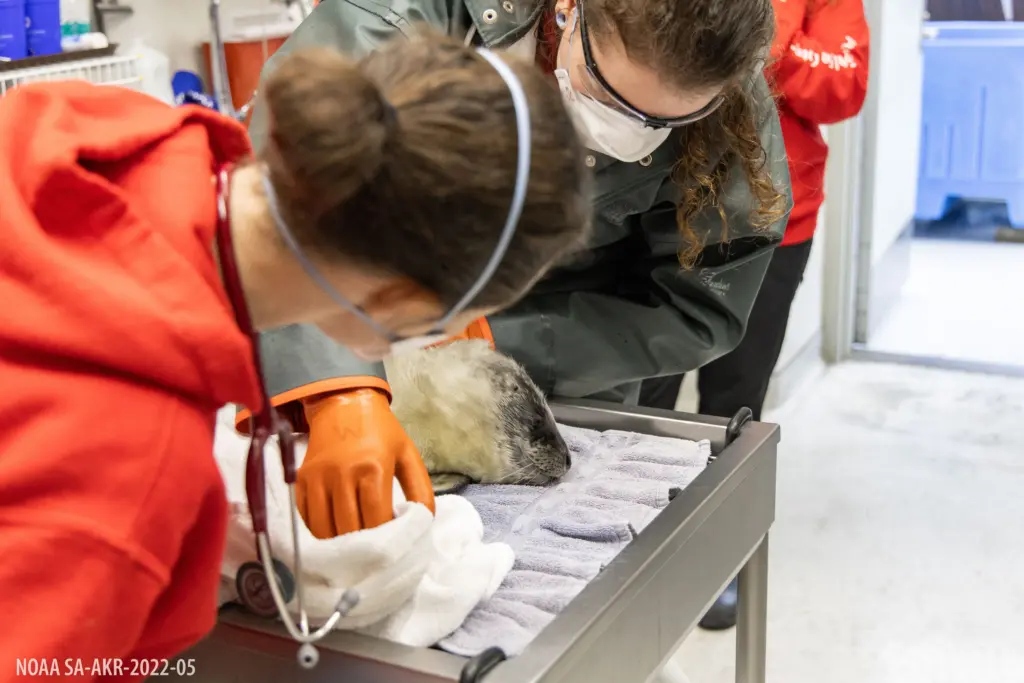
Just four days later, on May 31, 2025, and from over 700 miles away, a female harbor seal pup was found very emaciated on a beach in Homer, Alaska. She was very skinny, dehydrated, and had a fresh umbilicus, which indicates she was newly born. Once recovery was authorized by NOAA, ASLC Homer volunteers were able to recover and start her transportation to the ASLC for critical veterinary care. This pup’s bloodwork also pointed to liver dysfunction, but the primary concern for the animal care team is her severely malnourished and dehydrated state. She also remains in critical condition.
As staff continued providing intensive care for the three harbor seal pups already admitted, they braced for another admit on June 3, 2025. A female harbor seal pup was spotted alone in an unusual location in Anchorage, Alaska. ASLC staff observed the pup for several hours and a tidal cycle through reports provided by the public via the ASLC marine mammal stranding hotline. When no mother returned and the pup remained vulnerable in a heavily trafficked area, NOAA authorized rapid intervention, and the pup was transferred to the ASLC for treatment and rehabilitation.
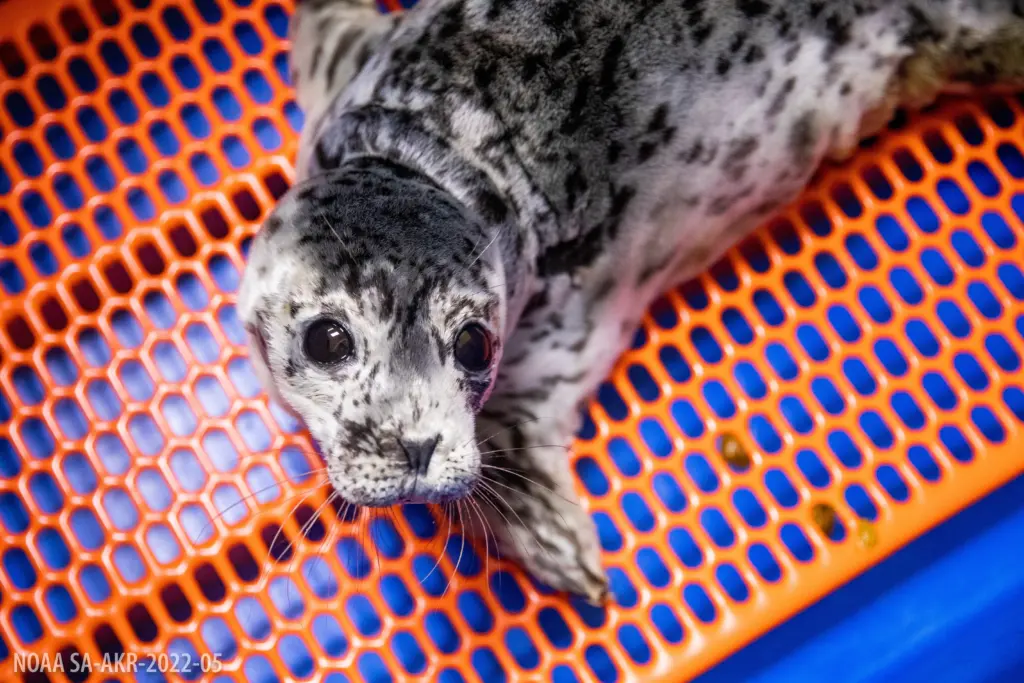
How can you help harbor seals like these three pups? One of the most significant threats to harbor seal pups during pupping season is human disturbance. If a pup is approached by a human or dog, the mother may abandon it. Once abandoned, a pup’s chances of survival drop dramatically, especially during the critical window when the pup relies entirely on her milk for nutrition, immune support, and survival.
It is essential to give seals space and share coastal areas responsibly. Do not approach, touch, or attempt to move a seal pup. Keep children and pets at a safe distance from haul-out sites and known pupping areas.
Approaching or disturbing a marine mammal can cause serious harm to the animal, put people at risk, and may result in violations of the Marine Mammal Protection Act. Responsible viewing ensures that these young animals have the best chance to grow and survive in the wild.
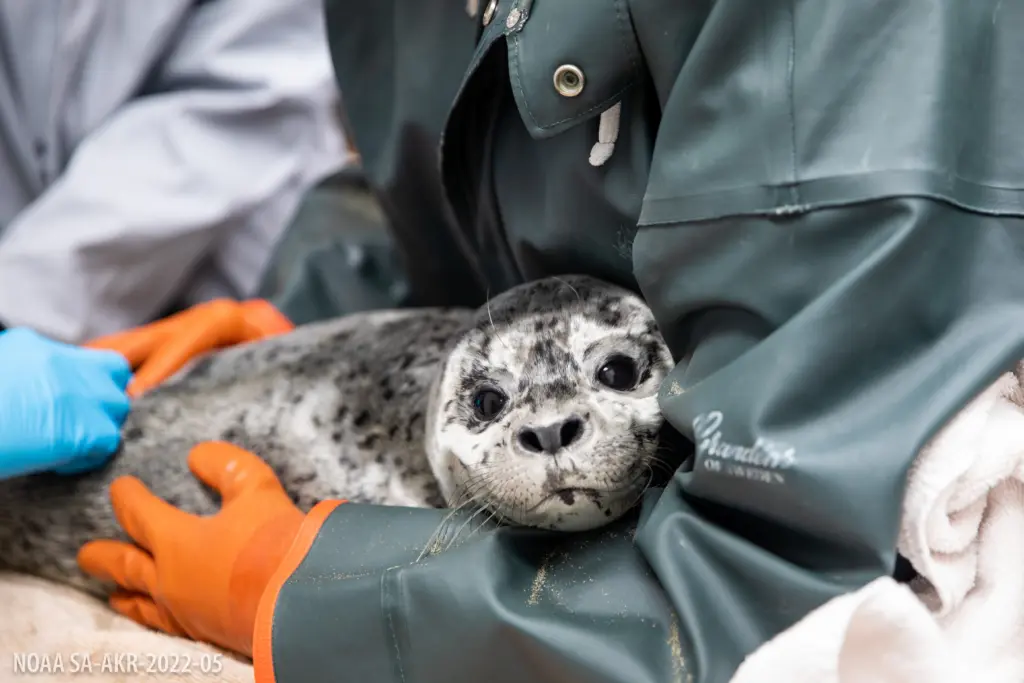
If you do see a seal pup in distress, the Alaska SeaLife Center remains ready to respond to reports of stranded and injured marine mammals statewide. Call the 24-hour Stranded Marine Animal Hotline at 1-888-774-SEAL (7325). We encourage all Alaskans and visitors to save this number in their phone contacts—and remember, always call first before approaching any stranded or injured wildlife.
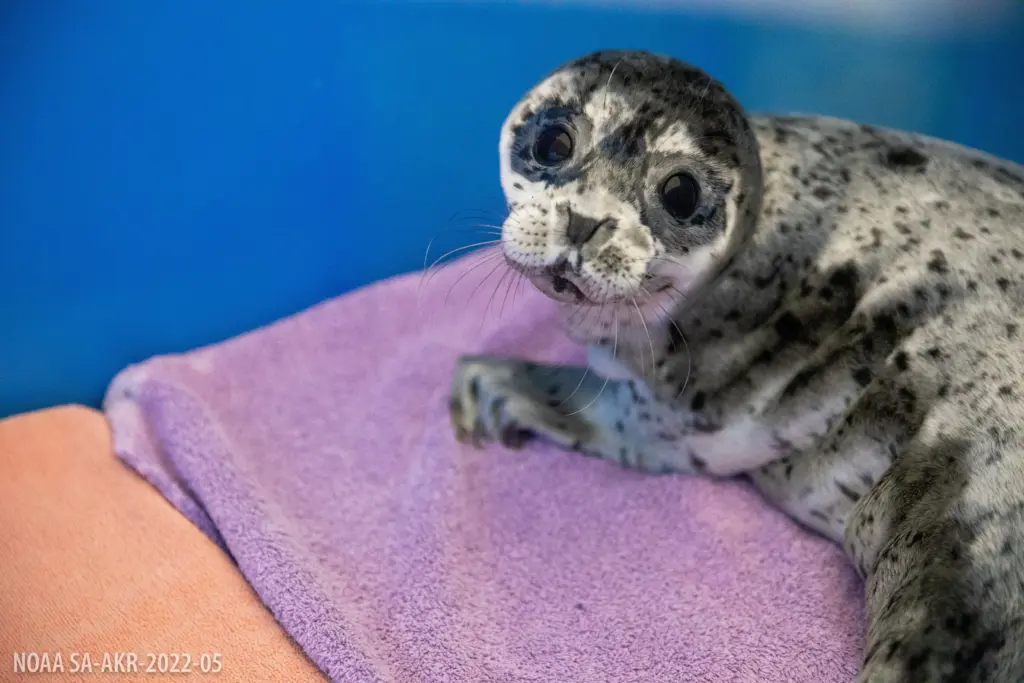
The Alaska SeaLife Center’s Wildlife Response Program can only provide care for stranded and injured marine animals with help from corporate sponsors and individual donors. People are encouraged to contribute to the care of rehabilitating marine animals here: www.alaskasealife.org/donate.
The Center acknowledges the ongoing generous support of the Wildlife Response Program from supporters like ConocoPhillips Alaska, Marathon Petroleum Corporation, PetZoo, Partners 4 Wildlife, Matson, GCI, and a number of individual donors, funds, and foundations such as Stanley J Williams Fund, Mesara Family Foundation, and the NC Giving Fund. About ASLC
Opened in 1998, the Alaska SeaLife Center operates as a 501(c)(3) nonprofit research institution and public aquarium in Seward, Alaska. The Center generates and shares scientific knowledge to promote understanding and stewardship of Alaska’s marine ecosystems. The ASLC is an accredited member of the Association of Zoos and Aquariums. To learn more, visit www.alaskasealife.org.
